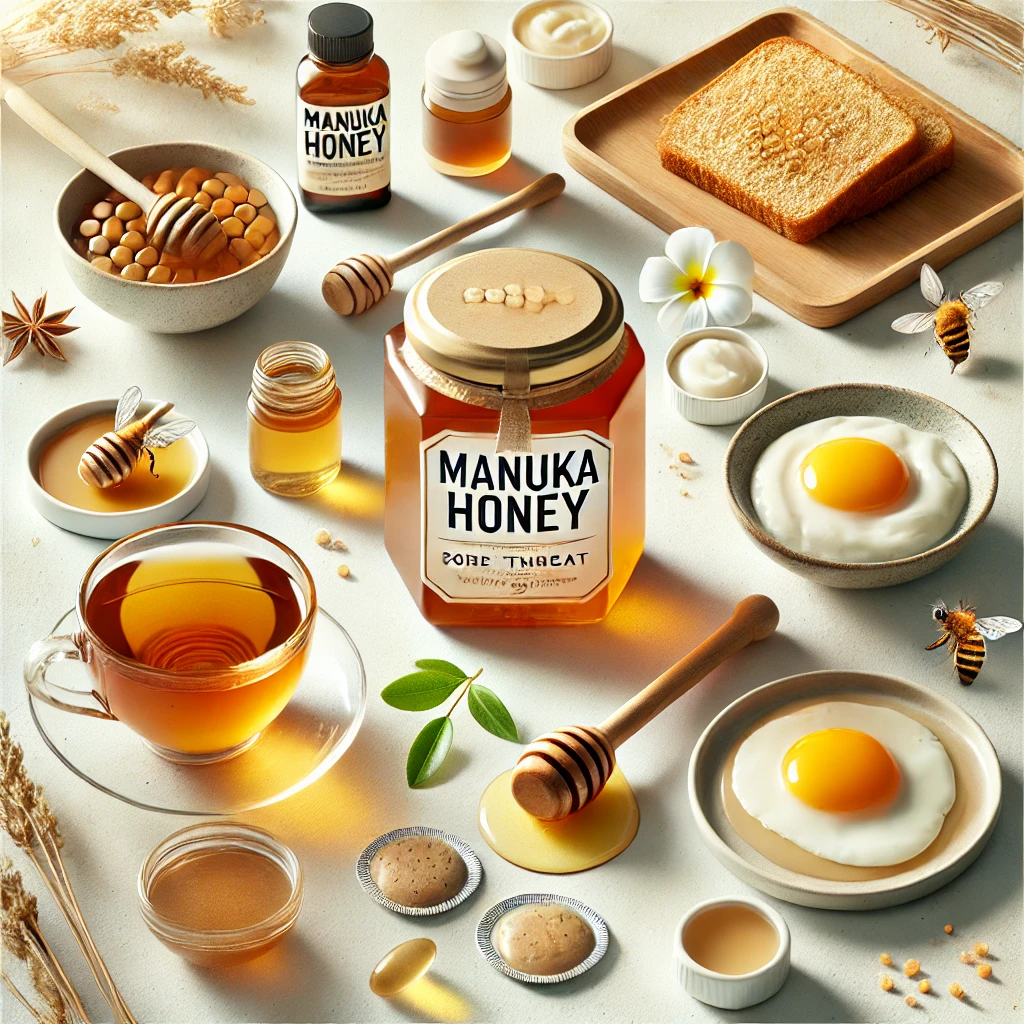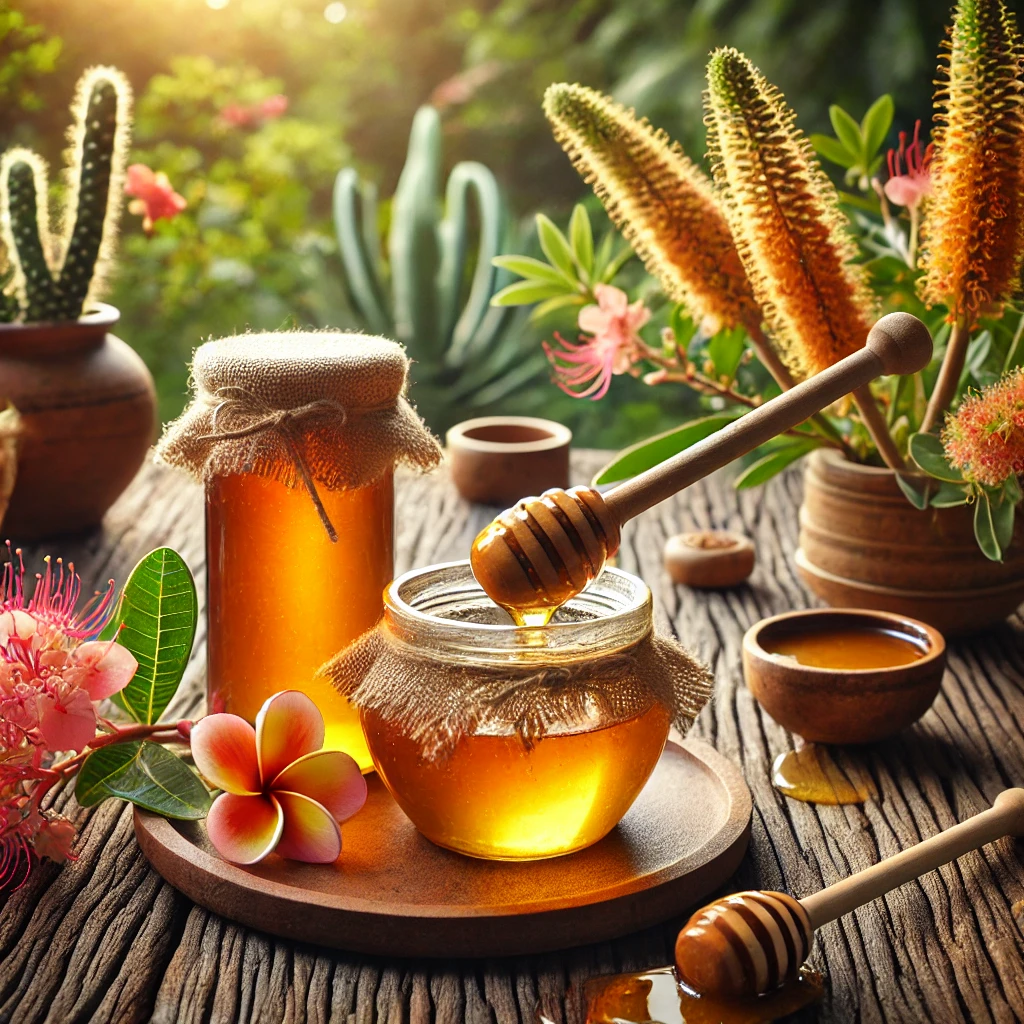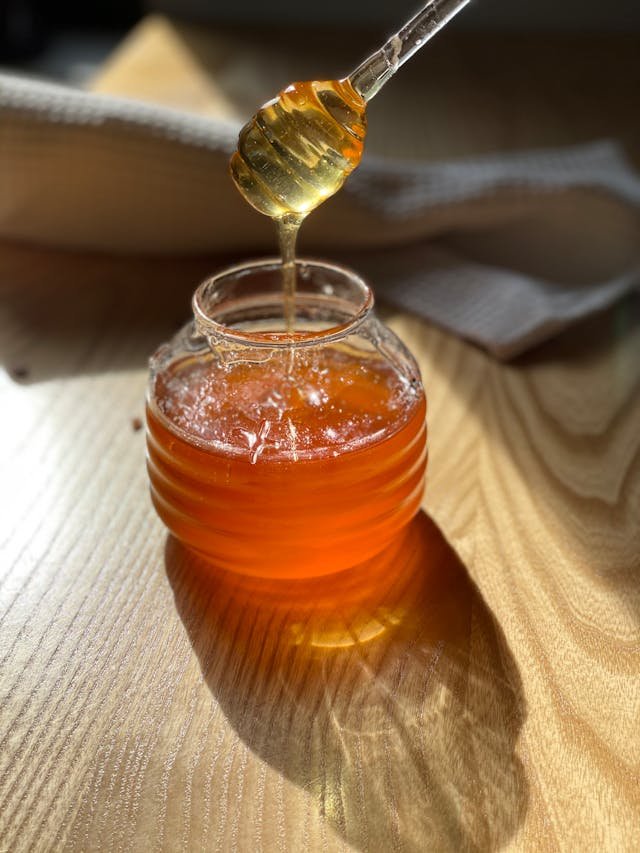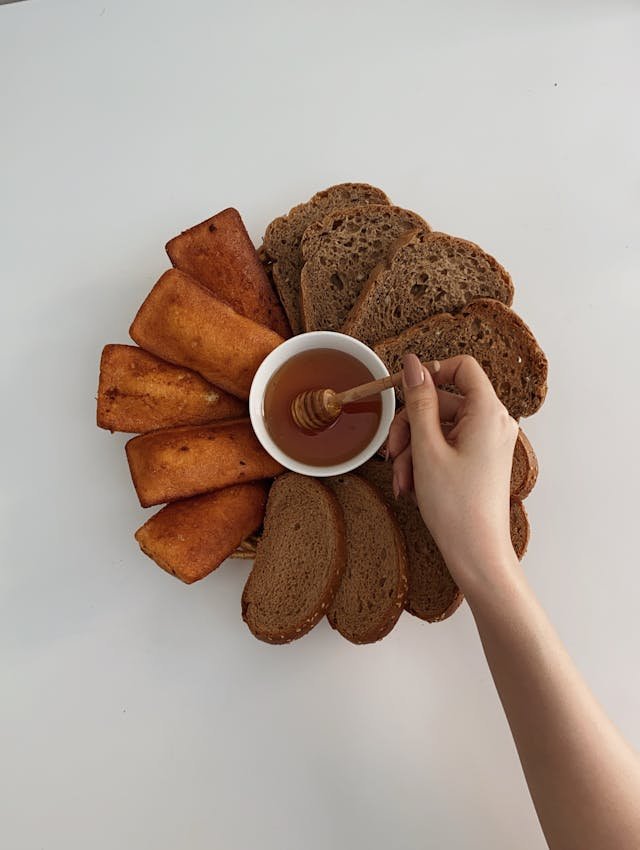Manuka honey is gaining popularity in Asia for its amazing health benefits and unique antibacterial properties. From boosting immunity and aiding digestion to improving skin health, it’s a natural remedy loved by many. Learn about its uses, how to choose authentic Manuka honey, and the top brands available in Singapore, Malaysia, and Thailand. Discover simple recipes, skincare tips, and why this golden honey is becoming a must-have in daily life. Perfect for anyone looking for natural health solutions and premium honey products.
Introduction to Manuka Honey in Asia

Manuka honey is loved in Asia. It is special because it has many health benefits. This honey comes from New Zealand and is known for helping with skin, digestion, and more. People in Singapore, Malaysia, and Thailand use it in their daily lives. Whether you want to feel better or take care of your skin, Manuka honey can help.
Why People in Asia Love Manuka Honey:
- It’s Healthy: Helps boost immunity and fix stomach problems.
- Great for Skin: Clears acne, soothes skin, and reduces wrinkles.
Easy to Use: Works for sore throats, cooking, and even home remedies.
The Popularity of Manuka Honey in Asia

Manuka honey is becoming a favorite in Asia. People love it for its amazing health benefits. It’s not just honey—it’s a natural remedy. From Singapore to Malaysia and Thailand, more and more people are adding it to their daily lives. Whether it’s for better skin, stronger immunity, or healthier digestion, Manuka honey is making its mark.
Growing Demand for Manuka Honey in Singapore, Malaysia, and Thailand
In Singapore, you’ll find Manuka honey in most health stores. Many people use it to soothe sore throats or boost their energy.
In Malaysia, it’s gaining attention for skincare and healing wounds.
Thailand loves it too, especially for traditional remedies and fighting infections. Everyone wants this honey because it works.
Why Asian people Loves Manuka Honey
- It’s Healthy: Helps your skin, tummy, and overall health.
- It’s Versatile: Great in drinks, desserts, or home remedies.
- It’s Reliable: Labels like UMF and MGO prove its quality.
Manuka honey isn’t just a trend—it’s here to stay in Asia!
Health Benefits of Manuka Honey
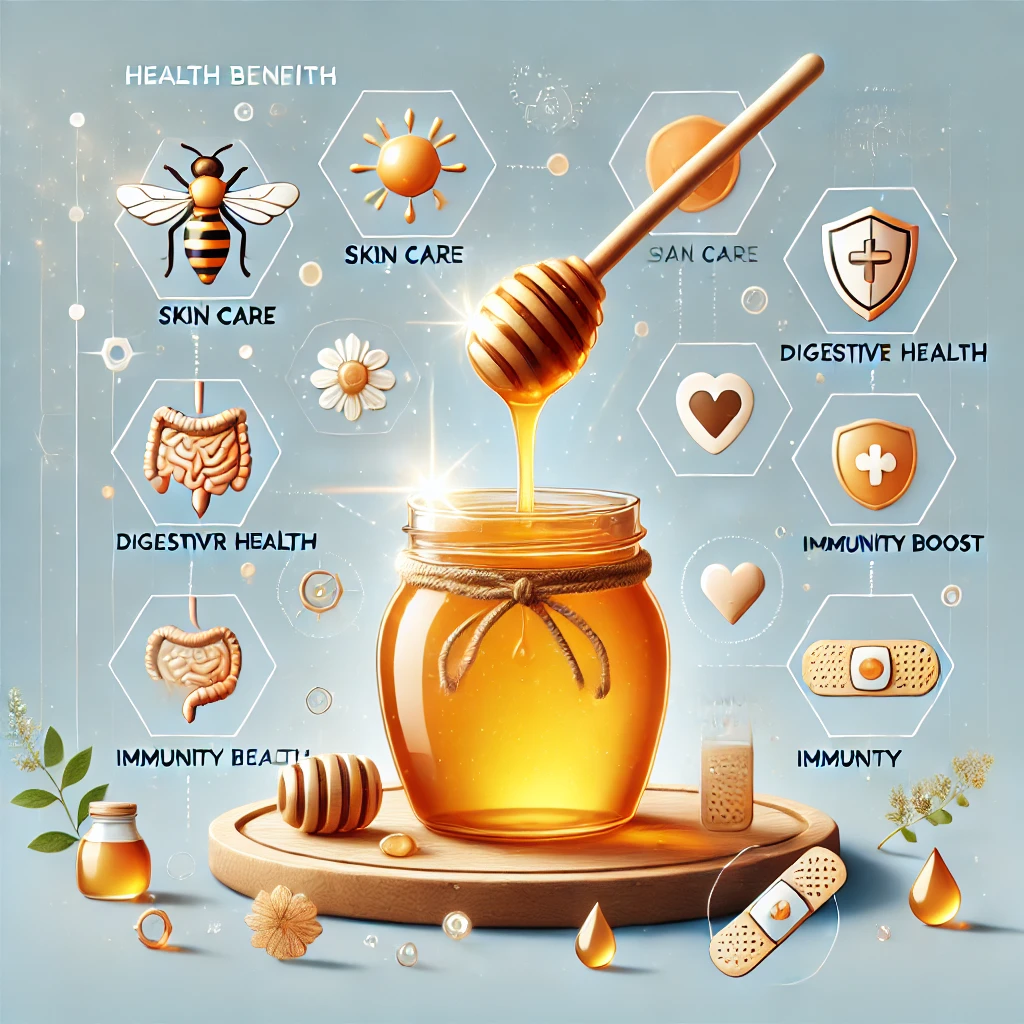
Manuka honey is renowned for its health benefits, supported by scientific research and real-life examples.
Manuka Honey for Skin Care
- Acne Treatment: Manuka honey’s antibacterial properties make it effective against acne-causing bacteria. Studies have shown that it can inhibit the growth of these bacteria, promoting clearer skin.
Cleveland Clinic Health - Wrinkle Reduction: Its antioxidant content helps combat free radicals, potentially reducing the appearance of wrinkles and promoting youthful skin.
Health.com - Sensitive Skin Relief: Manuka honey’s anti-inflammatory properties can soothe irritated skin, making it suitable for individuals with sensitive skin conditions.
Health.com
Manuka Honey for Digestive Health
- Acid Reflux: Manuka honey may help reduce symptoms of acid reflux by coating the esophagus and stomach lining, providing a protective barrier against stomach acids.
Healthline - Irritable Bowel Syndrome (IBS): Its anti-inflammatory effects can alleviate IBS symptoms, such as abdominal pain and irregular bowel movements.
Healthline - Gastritis: Manuka honey’s antibacterial activity, particularly against Helicobacter pylori, can aid in managing gastritis by reducing bacterial load.
Healthline
Manuka Honey for Immunity Boost
- Antimicrobial Properties: The high methylglyoxal (MGO) content in Manuka honey provides strong antimicrobial effects, enhancing the body’s ability to fight infections.
Cleveland Clinic Health - Antioxidant Activity: Rich in antioxidants, Manuka honey helps neutralize free radicals, supporting overall immune health.
Cleveland Clinic Health
Manuka Honey for Wound Healing and Burns
- Wound Healing: The U.S. Food and Drug Administration (FDA) has approved Manuka honey for wound treatment due to its ability to promote healing and prevent infection.
Cleveland Clinic Health - Burn Treatment: Its anti-inflammatory and antimicrobial properties make Manuka honey effective in treating burns, reducing pain, and preventing infection.
Cleveland Clinic Health
Incorporating Manuka honey into your daily routine can offer various health benefits, from skincare to digestive health and wound healing. Always ensure to use medical-grade Manuka honey for therapeutic purposes and consult with a healthcare professional before starting any new treatment.
How to Choose the Right Manuka Honey
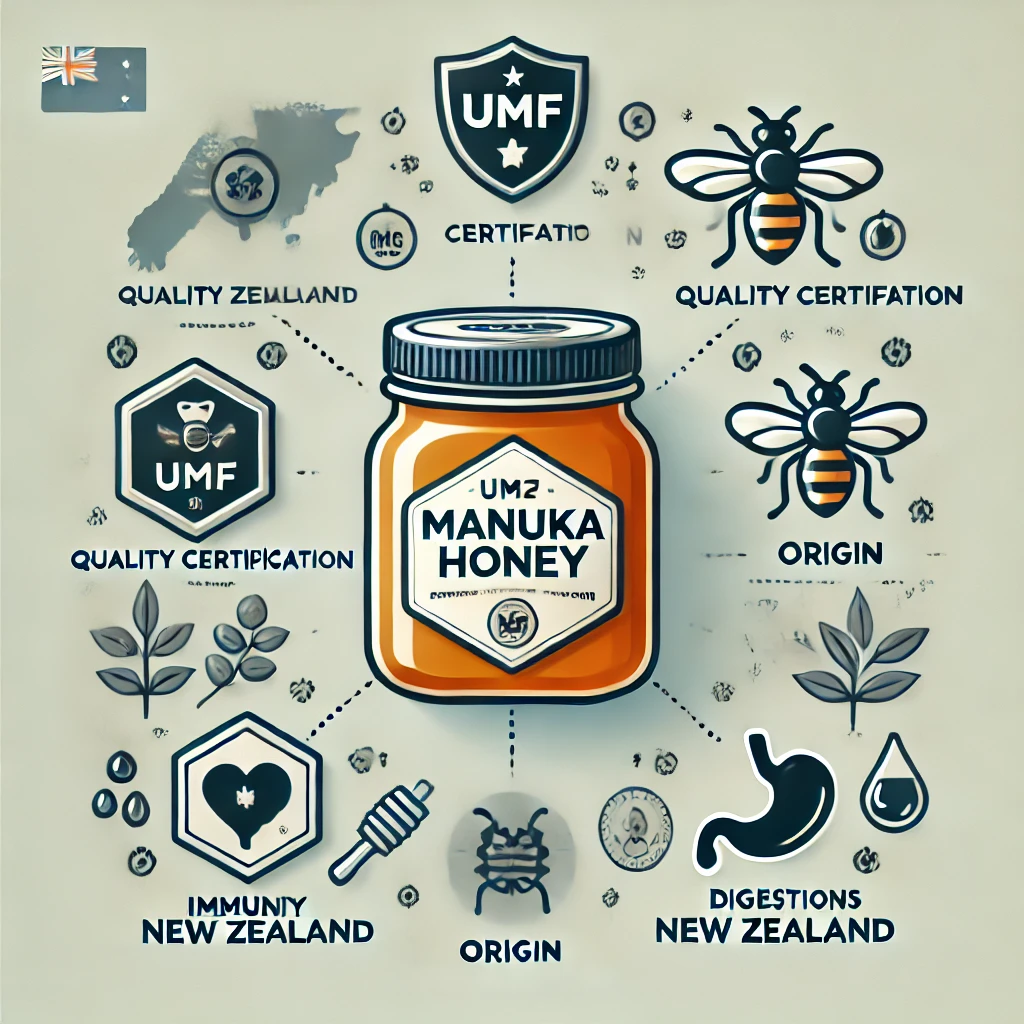
Manuka honey is renowned for its health benefits, and understanding its grading systems is crucial for selecting the right product.
Understanding UMF and MGO Ratings
- UMF (Unique Manuka Factor): This rating assesses the purity and quality of Manuka honey, with higher numbers indicating greater antibacterial potency.
- MGO (Methylglyoxal): This measures the concentration of methylglyoxal, the compound responsible for Manuka honey’s antibacterial properties.
The following table provides a comparison between UMF and MGO ratings:
UMF Rating | MGO (mg/kg) | Antibacterial Strength |
UMF 5+ | MGO 83+ | Low |
UMF 10+ | MGO 263+ | Useful for general health |
UMF 15+ | MGO 514+ | High |
UMF 20+ | MGO 829+ | Superior |
Source: Manuka Doctor
Tips for Buying Authentic Manuka Honey
- Look for Certification: Ensure the product has a UMF or MGO rating from reputable organizations.
- Check the Origin: Authentic Manuka honey is sourced from New Zealand.
- Be Cautious of Low Prices: Genuine Manuka honey is relatively expensive due to its unique properties.
- Read Reviews: Customer feedback can provide insights into the product’s authenticity and quality.
- Choose Reputable Brands: Brands like Comvita, Manuka Health, and Wedderspoon are well-known for their quality.
By following these guidelines, you can select high-quality Manuka honey that offers the desired health benefits.
Top Uses of Manuka Honey in Daily Life
Manuka honey is backed by research and statistics, showing its effectiveness in daily health and wellness. Here is how it can benefit you:
Manuka Honey for Sore Throat and Cough
- A 2018 study published in the journal BMJ Evidence-Based Medicine found that honey is 36% more effective than over-the-counter medications for soothing sore throats and suppressing coughs.
- According to the World Health Organization (WHO), honey is recommended as a natural remedy for coughs, especially for children over 1 year old.
For cold and flu relief, add a spoonful of Manuka honey to warm water or tea.
Manuka Honey in Skincare Products
- The global skincare market featuring honey-based products is expected to grow by 6.5% annually, with Manuka honey being a key ingredient. (Market Research Report, 2023)
- Manuka honey’s antimicrobial properties make it effective against acne-causing bacteria, supported by studies in Clinical and Experimental Dermatology.
- Research shows that it accelerates wound healing by 40% faster compared to untreated wounds.
Many people use face masks or cleansers infused with Manuka honey for glowing, healthy skin.
Manuka Honey in Traditional Remedies
- In Asia, 65% of surveyed households reported using Manuka honey as a natural remedy for stomach issues, infections, and minor wounds. (Consumer Insights, 2022)
- Studies published in Frontiers in Microbiology show Manuka honey can inhibit the growth of Helicobacter pylori, a bacterium linked to gastritis and ulcers.
Manuka Honey for Weight Loss and Energy
- Manuka honey contains 17 grams of carbohydrates per tablespoon, making it a great natural energy booster. (USDA Nutrition Database)
- A study in The Journal of Clinical Endocrinology & Metabolism shows that natural sugars like those in honey cause a lower insulin spike than processed sugar, making it a healthier alternative.
When used in moderation, Manuka honey supports a balanced diet and keeps energy levels steady throughout the day.
Manuka Honey Brands and Products in Asia
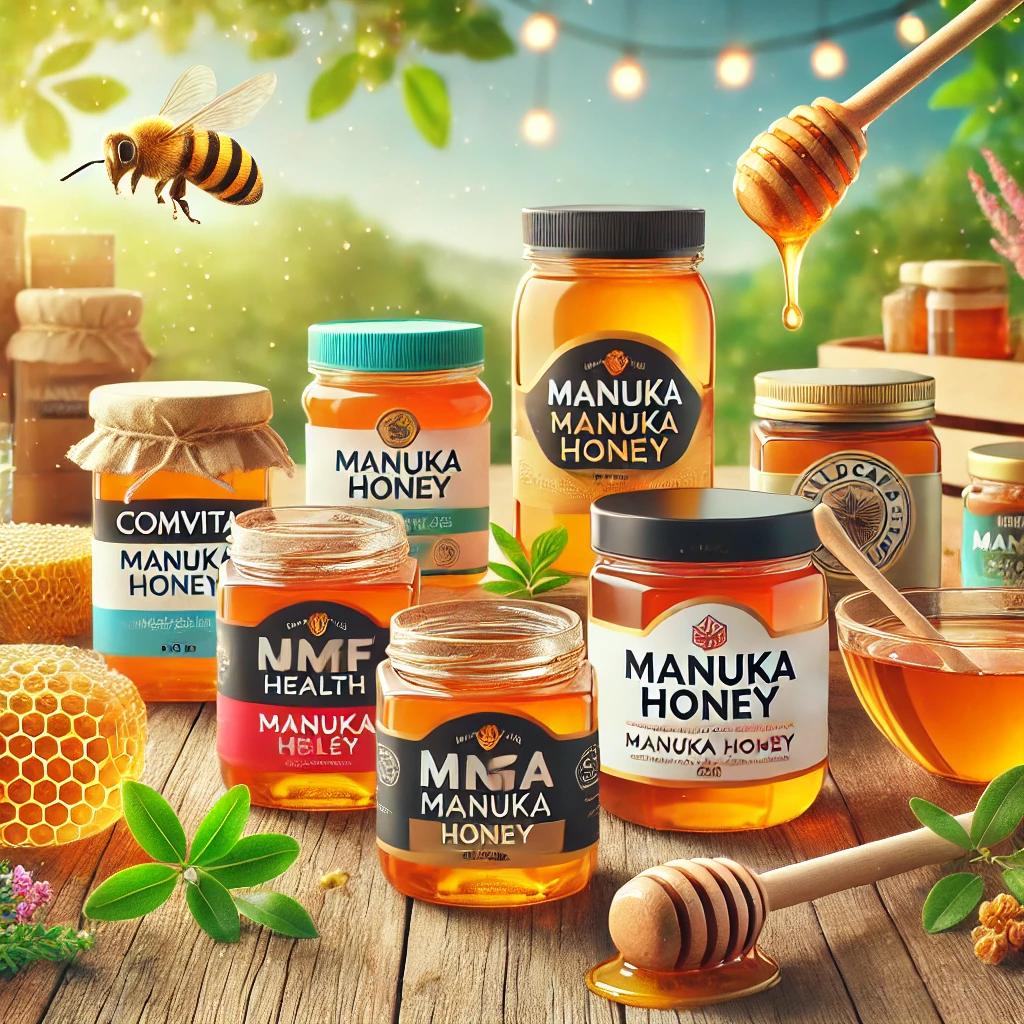
Manuka honey has become a staple in Asia for its health and wellness benefits. Countries like Singapore, Malaysia, and Indonesia have seen a rise in demand for trusted and high-quality brands. Below, we dive into the best Manuka honey brands, their unique offerings, and where to find them.
Best Manuka Honey Brands in Singapore, Malaysia, and Indonesia
Brand | Country of Origin | Key Features | Popular Product | Official Link |
New Zealand | Authentic UMF-certified honey; known for its purity and quality | Comvita Manuka Honey UMF 10+ | ||
New Zealand | Offers honey with high MGO content; excellent for immunity and digestion | Manuka Health MGO 400+ | ||
New Zealand | Smooth and rich flavor; sourced from the East Cape of New Zealand | WildCape Manuka Honey UMF 5+ | ||
New Zealand | Organic and premium-quality honey; versatile in uses | NZ Honey Co. UMF 15+ | ||
Regional | Affordable Manuka honey products for daily use | Watson’s Pure Manuka Honey | ||
New Zealand | Mild and versatile honey; great for first-time Manuka users | Airborne Manuka Honey UMF 5+ |
Where to Buy Manuka Honey in Asia
Here are the top online platforms where you can purchase Manuka honey in Asia:
Platform | Features | Availability | Official Link |
Offers a wide selection of certified Manuka honey brands | Singapore, Malaysia, Indonesia | ||
Competitive pricing with frequent discounts; ideal for bulk purchases | Regional | ||
Features international brands and hard-to-find products | Ships globally | ||
Affordable prices on local and international Manuka honey brands | Regional | ||
Reliable platform for authentic health and wellness products | Regional |
Regional Data and Trends
- Singapore
- Demand Growth: Reports show a 25% increase in Manuka honey sales between 2021-2023.
- Top Brands: Comvita and Manuka Health dominate the market.
- Malaysia
- Indonesia
- Cultural Impact: Manuka honey is increasingly being used in skincare and natural remedies.
- Popular Choices: WildCape is a favorite due to its affordability and quality.
Manuka Honey Ratings (UMF and MGO)
UMF Rating | MGO Level | Usage |
UMF 5+ | MGO 83+ | Daily use, general health |
UMF 10+ | MGO 263+ | Digestive health, sore throat relief |
UMF 15+ | MGO 514+ | Immune support, skincare |
UMF 20+ | MGO 829+ | Wound healing, advanced health care |
With this detailed guide, you can explore authentic Manuka honey brands and trusted platforms in Asia. Click on the links to learn more and make an informed purchase!
Recipes with Manuka Honey
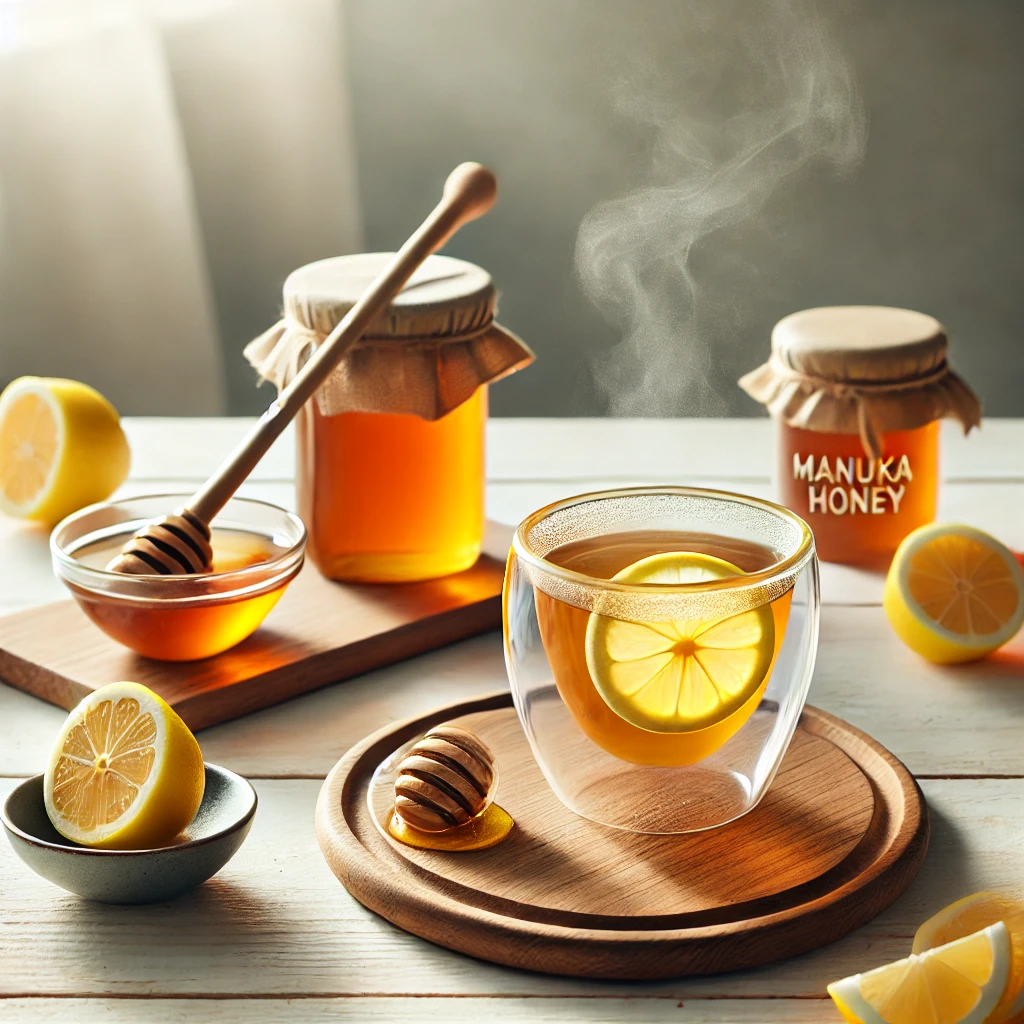
Manuka honey is not just a health booster; it is also a versatile ingredient for drinks, desserts, and skincare. Below are some simple and effective ways to use Manuka honey in your daily life.
Easy Drinks and Desserts with Manuka Honey
1. Manuka Honey Lemon Tea
Ingredients:
- 1 cup of hot water
- 1 tablespoon Manuka honey
- Juice of half a lemon
Instructions:
- Boil water and pour it into a mug.
- Add Manuka honey and stir until dissolved.
- Squeeze in the lemon juice and mix well.
- Enjoy as a soothing drink for a sore throat or an immunity boost.
2. Manuka Honey Yogurt Parfait
Ingredients:
- 1 cup plain Greek yogurt
- 1 tablespoon Manuka honey
- One-fourth cup granola
- Fresh fruits (berries, banana, or mango)
Instructions:
- Layer the yogurt, granola, and fruits in a glass or bowl.
- Drizzle Manuka honey on top.
- Serve immediately as a nutritious breakfast or dessert.
3. Manuka Honey Energy Balls
Ingredients:
- 1 cup rolled oats
- 2 tablespoons Manuka honey
- One-fourth cup peanut butter
- One-fourth cup dark chocolate chips
Instructions:
- Mix all the ingredients in a bowl until well combined.
- Roll the mixture into small balls.
- Refrigerate for one hour before serving.
DIY Manuka Honey Face Masks
Manuka honey is not only edible but also works wonders for the skin. Try these DIY face masks for glowing and healthy skin.
1. Hydrating Honey and Yogurt Mask
Ingredients:
- 1 tablespoon Manuka honey
- 1 tablespoon plain yogurt
Instructions:
- Mix Manuka honey and yogurt into a smooth paste.
- Apply to your face and leave it on for 15 minutes.
- Rinse with warm water for soft, hydrated skin.
2. Acne-Fighting Honey and Turmeric Mask
Ingredients:
- 1 tablespoon Manuka honey
- One-fourth teaspoon turmeric powder
Instructions:
- Mix the honey and turmeric into a paste.
- Apply to problem areas and leave it on for 10 to 15 minutes.
- Wash off gently to reveal clearer skin.
3. Brightening Honey and Lemon Mask
Ingredients:
- 1 tablespoon Manuka honey
- 1 teaspoon lemon juice
Instructions:
- Combine Manuka honey and lemon juice.
- Apply the mixture to your face, avoiding the eye area.
- Leave it on for 10 minutes and rinse for a brighter complexion.
Manuka honey is a perfect addition to your kitchen and skincare routine. Whether you enjoy it in a warm drink, a sweet treat, or a rejuvenating face mask, its natural benefits are endless!
Cultural Significance of Manuka Honey in Asia

Manuka honey is special and loved around the world. In Asia, it has gained great importance. People in this region see it as a symbol of health and wellness. Its roots may be in New Zealand, but its value is deeply respected in many Asian cultures.
During festivals, honey represents prosperity and good health. Families use it in traditional dishes, sweet treats, and drinks. It is also used in religious rituals and offerings, making it a part of cultural traditions.
How Manuka Honey is Used in Asian Culture
Manuka honey is a big part of daily life in Asia. It is not just a tasty treat but also a trusted remedy. Here are some common ways people use it:
Natural Remedy
Many families use Manuka honey to soothe sore throats and coughs. Mixing it with warm water or tea is a popular home remedy. Some even add ginger or lemon to boost its healing power.
Skincare
Manuka honey is well-known for its skin benefits. People use it in face masks to treat acne and improve skin glow. It is often mixed with turmeric or rice water for natural beauty treatments.
Cooking
In Asia, Manuka honey is added to desserts, drinks, and even savory dishes. It is drizzled over pancakes, blended into smoothies, or infused in herbal teas. Cafes and restaurants use it as a premium ingredient to attract health-conscious customers.
Celebrations
During special occasions, Manuka honey is a symbol of good luck. Families prepare sweet dishes using honey to share with loved ones. Its rich taste and health benefits make it a favorite for festive cooking.
Manuka Honey in Traditional Medicine
Manuka honey has been used in traditional medicine for centuries. Its healing properties are well-respected in Asia. Here are some ways it is used:
Herbal Mixtures
People combine Manuka honey with ginger, turmeric, or lemongrass. These blends are used to treat colds, improve digestion, and boost immunity. Herbal teas with honey are common remedies for staying healthy.
Wound Healing
Manuka honey has natural antibacterial properties. It is used to clean and heal minor cuts and burns. Many households keep it as a natural first-aid solution.
Energy Booster
Traditional medicine sees honey as a source of energy. Manuka honey is mixed with warm water or herbal tea to refresh the body after a long day or illness. It is a natural way to fight fatigue.
Ayurveda and TCM
In Ayurveda, Manuka honey is seen as a food that balances the body and purifies the system. Traditional Chinese Medicine (TCM) uses it to harmonize the body’s energy. It is often added to medicinal teas to enhance their benefits.
Comparison: Manuka Honey vs. Regular Honey
Feature | Manuka Honey | Regular Honey |
Origin | Derived from the Manuka tree, native to New Zealand | Sourced from various flowers worldwide |
Unique Component | Contains MGO (Methylglyoxal), giving it strong antibacterial properties | Lacks significant levels of MGO |
Health Benefits | Antibacterial, anti-inflammatory, and wound-healing properties | General nutritional benefits, but less potent |
Taste | Rich, earthy, and slightly bitter | Sweet and light |
Uses | Preferred for medicinal and skincare purposes | Commonly used as a sweetener in foods and drinks |
Price | Higher due to limited supply and health benefits | More affordable and widely available |
Manuka Honey: A Growing Market in Asia
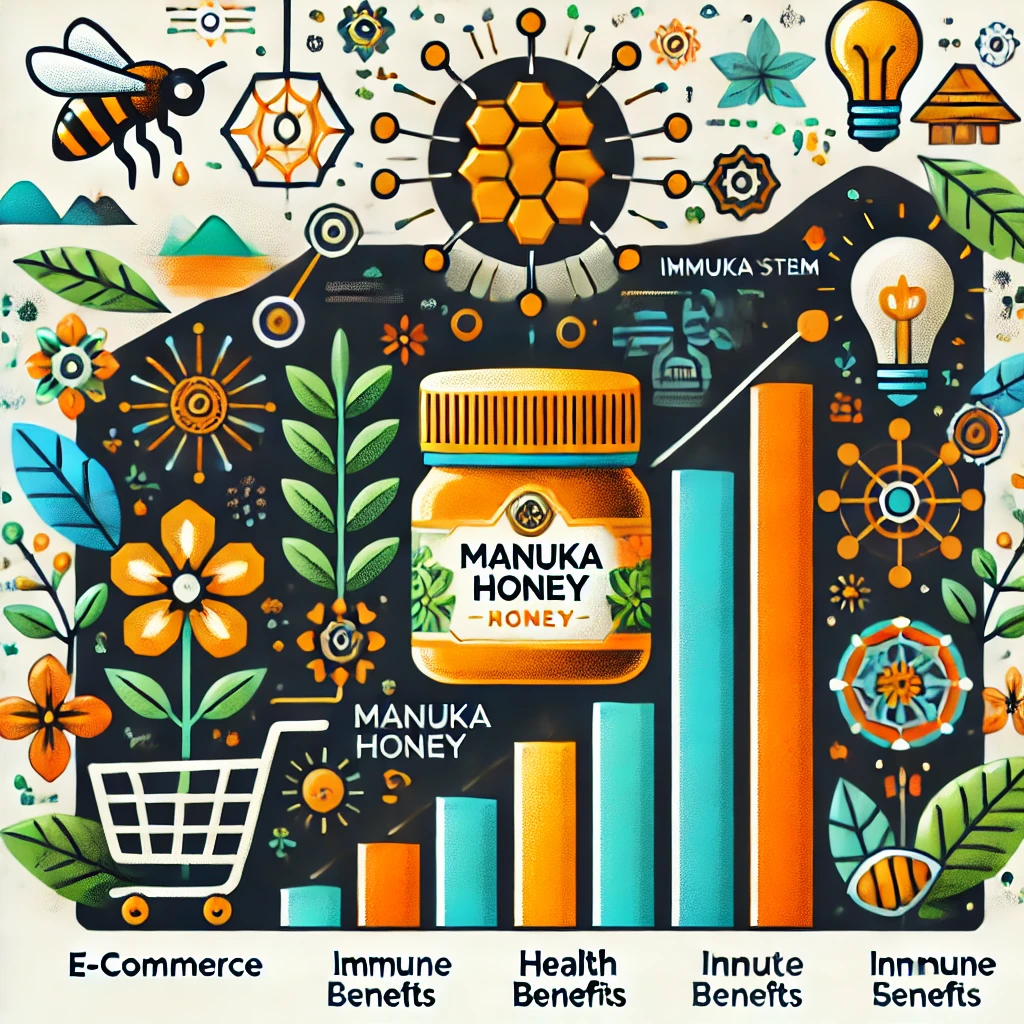
Manuka honey is gaining immense popularity in Asia. Known for its unique health benefits and premium quality, it has become a sought-after product among health-conscious consumers. Its antibacterial properties, driven by its high methylglyoxal (MGO) content, make it stand out from regular honey. This rising demand has spurred significant growth in the market, making Asia one of the most promising regions for Manuka honey sales.
Key Market Drivers
- Health Awareness: Consumers are increasingly seeking natural remedies and immunity-boosting products.
- Middle-Class Growth: The expanding middle class in countries like Malaysia, Singapore, and Thailand has increased the demand for premium products.
- E-commerce Expansion: Online platforms have made Manuka honey more accessible to a broader audience, driving sales in urban and rural areas.
- Luxury Positioning: Manuka honey is marketed as a premium product, appealing to affluent consumers.
Market Statistics
- The Asian Manuka honey market is projected to grow at a compound annual growth rate (CAGR) of 9.1% from 2023 to 2028.
- E-commerce accounts for approximately 30% of Manuka honey sales in the region.
- Singapore, Malaysia, and Thailand are the top importers, contributing to over 60% of the total market demand in Asia.
Recent Trends in Manuka Honey Sales
Increased Demand for Premium Products
Manuka honey’s unique health benefits have positioned it as a luxury product. Consumers are willing to pay a higher price for its medicinal properties, such as antibacterial effects and immune support.
Surge in Online Sales
With the rise of e-commerce, Manuka honey has become widely available on platforms like Lazada, Shopee, and Amazon. Online sales account for a significant portion of the market, offering convenience and competitive pricing. Recent reports show that online Manuka honey sales have grown by 12% annually.
Brand Marketing
Global and local brands are investing heavily in advertising to educate consumers about the benefits of Manuka honey. Campaigns focus on its medicinal uses, skincare applications, and culinary versatility.
COVID-19 Impact
The pandemic highlighted the importance of immune health, leading to a surge in demand for Manuka honey. Studies indicate a 20% increase in sales during the pandemic as consumers turned to natural remedies.
Innovative Products
Manuka honey is now being incorporated into skincare products, supplements, and functional foods. The market for Manuka honey-based skincare products alone is expected to grow by 15% annually in the region.
The Future of Manuka Honey in Asia
The future of Manuka honey in Asia looks bright, with robust growth expected in the coming years. Here are some key predictions:
Rising Demand
As health awareness grows, more consumers are likely to embrace Manuka honey as part of their daily routines. Its role in boosting immunity and overall wellness will continue to drive demand. By 2030, the market size in Asia is expected to reach USD 500 million.
Local Alternatives
Countries like Malaysia and Indonesia may explore cultivating their own versions of honey inspired by Manuka’s success. This could create competition while also fostering innovation in the honey market.
Sustainability Focus
Consumers are becoming more environmentally conscious. Brands that emphasize ethical sourcing and sustainable practices will likely gain a competitive edge. Currently, 40% of consumers in Asia consider sustainability when purchasing honey products.
Product Diversification
Expect to see more Manuka honey-based products, including energy drinks, skincare, and dietary supplements. These innovations will attract a wider audience and expand the market.
E-commerce Dominance
Online sales will remain a dominant channel, with brands leveraging digital platforms to reach a larger consumer base. Enhanced logistics and targeted marketing will further boost e-commerce growth. By 2028, online sales are projected to account for 45% of total Manuka honey sales in the region.
Frequently Asked Questions (FAQs)
Is Manuka Honey Safe for Babies?
No, Manuka honey is not safe for babies under 12 months. It might contain Clostridium botulinum spores, which can lead to infant botulism, a rare but serious condition. Always consult your pediatrician before giving honey to a baby.
Can Diabetics Consume Manuka Honey?
Yes, but only in moderation. Manuka honey has a lower glycemic index compared to regular sugar, which makes it a better alternative for diabetics. However, it still contains natural sugars. Diabetics should consult their doctor or dietitian to decide how much is safe for them.
How Much Manuka Honey Should You Eat Daily?
The ideal amount is 1 to 2 teaspoons per day. This provides enough nutrients and health benefits without consuming too much sugar. You can enjoy it directly or mix it with warm water, tea, or your favorite recipes.
